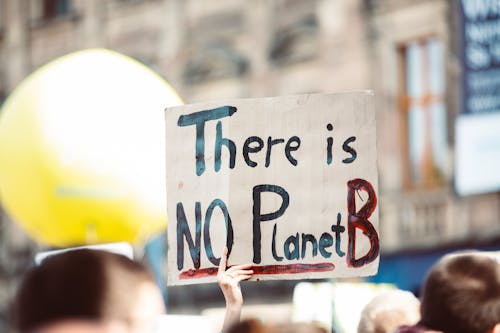
The Catholic Peace Weekly Diagnosis of the Times column by the Director of the Jesuit Center for Human Rights gives the readers some background on the recent floods in Libya.
Eastern Libya was devastated by the storm Daniel. Even though it was the dry season in September, the port city of Derda was washed out to sea after two dams collapsed due to heavy rain. It is said that the number of deaths has already exceeded 20,000, but in fact, there are no ways to confirm these numbers. The sight of ruins on the news is terrible and makes the viewing difficult.
Libya, an oil-rich country, has suffered greatly from colonial rule and dictatorship for a long time. Even after the death of dictator Gaddafi, the country was already in a state of crisis due to division and civil war that continued for over 10 years, with the ruling elite's pursuit of self-interest and the power struggle. In addition to the natural disaster, it became a man-made disaster that caused the entire society to collapse due to "corruption, poor infrastructure, impunity for those in power, and suppression of civil society." (Interview with the Guardian by Libyan human rights lawyer Elam Saudi)
This disaster is inseparable from the history of invasion and exploitation by Western powers. Libya, under Italian colonial rule, overthrew its monarchy in a revolution in 1969. When the revolutionary government nationalized the oil industry, the United States bombed oil production facilities to stop it. As Islamic extremist forces spread across the Middle East and North Africa due to the ‘Arab Spring’ in 2011, the United States and NATO used this as an excuse to intervene in the Libyan civil war, resulting in numerous civilian casualties.
During the refugee crisis in Europe in 2015, the European Union completely blocked Libya's Mediterranean coast. Powerful countries always choose violence over peace when interests are at stake. The powers of the United States and Europe, who intervened to somehow profit from a country where the majority of the people were farmers, created a corrupt elite in Libya. It is no exaggeration to say that the Libyan disaster was the imperialist thinking on the part of wealthy citizens of wealthy countries who live blind to the fact that their comfort comes from the power of the imperialism to which they belong.
This disaster is also related to the climate crisis. This year, Hong Kong, which recorded the highest rainfall since observations began in 1884, as well as Greece, the United States, Spain, and China, suffered unprecedented heavy rain damage. In terms of frequency and severity, it is an extreme weather event. Natural disasters are now the most obvious symptom of the climate crisis. Climate change, natural disasters and social disasters are all interconnected.
In this way, natural disasters enter the crossroads of either destruction or recovery depending on politics and governance, intervention by powerful countries, and the role and response of civil society. At first glance, it is tempting to view climate change as only a problem of science, technology, and the bureaucracy that coordinates them, but this is a mistake. Disasters related to the climate crisis are deeply intertwined with democracy and imperialism. The climate crisis is accelerated by the disappearance of the public, that is, privatization and corruption, colonialism and militarism, and the ideology of globalization.
There is no quick solution to these complex life risks. This is because the rules of this race are created by energy companies, banks, and the military-industrial complex. The reason people feel a sense of crisis but also feel helpless is because citizens are unable to adjust the policy-making process and direction in society. Not only political life, but also social life has already become unable to promote common interests due to excessive intervention of markets.
Political and cultural renewal takes a lot of time. What we need now is to revive the connection between people, the common good, at the core of life, which must always be for the benefit of all. It is to promote the most basic good in human life, to resist and avoid evil. "Ask yourself whether I am really a decent and noble p erson?" "There is a hometown everywhere in the world."(Naomi Klein, "Flowers Blooming Through Asphalt") You can meet that hometown at the ‘Climate Justice March’ which we experienced on September 23.